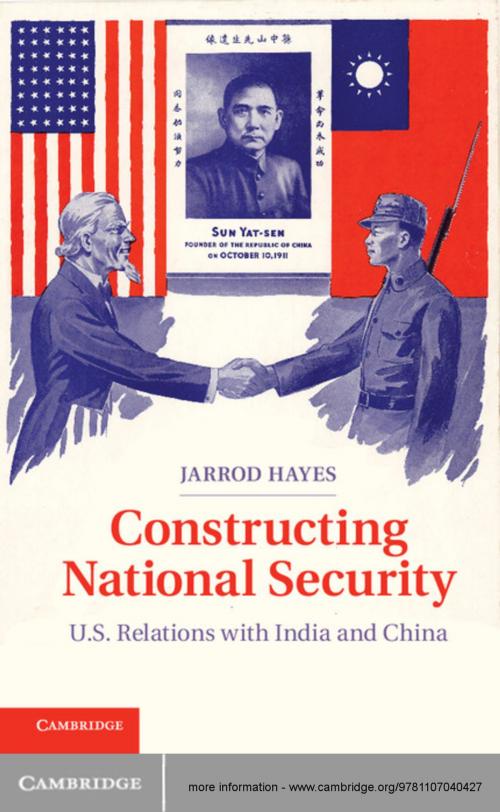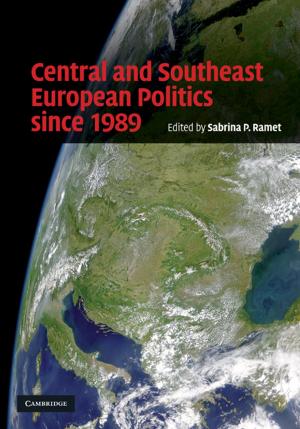Constructing National Security
U.S. Relations with India and China
Nonfiction, Social & Cultural Studies, Political Science, International, Foreign Legal Systems, International Relations| Author: | Jarrod Hayes | ISBN: | 9781107425231 |
| Publisher: | Cambridge University Press | Publication: | October 7, 2013 |
| Imprint: | Cambridge University Press | Language: | English |
| Author: | Jarrod Hayes |
| ISBN: | 9781107425231 |
| Publisher: | Cambridge University Press |
| Publication: | October 7, 2013 |
| Imprint: | Cambridge University Press |
| Language: | English |
Jarrod Hayes explores why democracies tend not to use military force against each other. He argues that democratic identity - the shared understanding within democracies of who 'we' are and what 'we' expect from each other - makes it difficult for political leaders to construct external democracies as threats. At the same time, he finds that democratic identity enables political actors to construct external non-democracies as threats. To explore his argument, he looks at US relations with two rising powers: India and China. Through his argument and case studies, Professor Hayes addresses not just the democratic peace but also the larger processes of threat construction in international security, the role of domestic institutions in international relations, and the possibility for conflict between the United States and the world's two most populous countries.
Jarrod Hayes explores why democracies tend not to use military force against each other. He argues that democratic identity - the shared understanding within democracies of who 'we' are and what 'we' expect from each other - makes it difficult for political leaders to construct external democracies as threats. At the same time, he finds that democratic identity enables political actors to construct external non-democracies as threats. To explore his argument, he looks at US relations with two rising powers: India and China. Through his argument and case studies, Professor Hayes addresses not just the democratic peace but also the larger processes of threat construction in international security, the role of domestic institutions in international relations, and the possibility for conflict between the United States and the world's two most populous countries.















